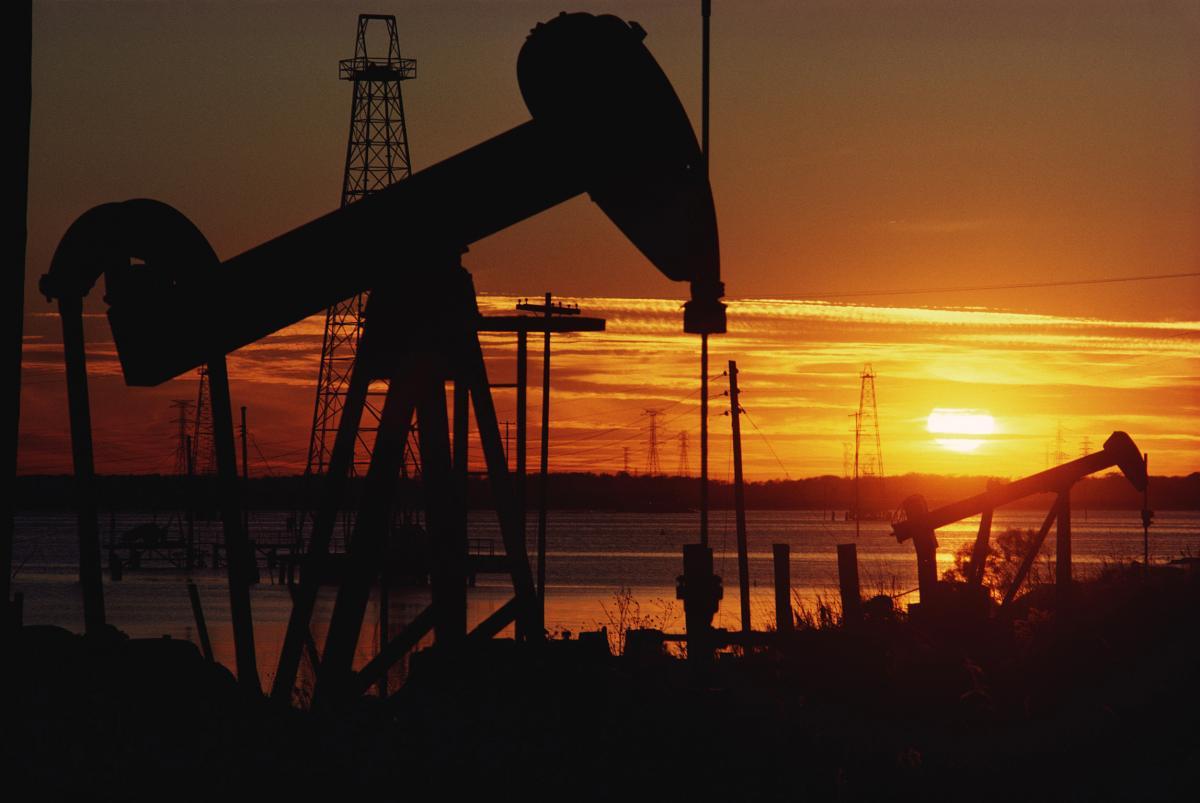OPEC announces forecasts on oil production in Azerbaijan in 2019

By Narmina Mammadova
The oil production in Azerbaijan in 2019 will remain at the same level as last year and will average 800,000 barrels per day, the OPEC January report says.
The cartel’s report says that according to the Ministry of Energy, in 2018, Azerbaijan produced an average of 792,000 barrels of oil and condensate per day, which is 2 percent more than in 2017.
According to preliminary data, oil production in Azerbaijan in December 2018 declined by 27,000 barrels, reaching 710,000 barrels per day, due to the temporary suspension of production at the Azeri-Chirag-Guneshli oil and gas block.
According to OPEC, in November, the liquid hydrocarbons production in Azerbaijan increased by 30,000 barrels per day compared to the previous month, averaging 830,000 barrels per day. According to the report, this is the result of an increase in oil production in the country by 25,000 barrels per day, and condensate - by 2,000 barrels.
The liquid hydrocarbons production in Azerbaijan in 2018, according to OPEC, remained unchanged - at the level of 800,000 barrels per day, and the annual figure is expected at the same level in 2019.
“According to forecasts, in the first half of 2019, the production of liquid hydrocarbons in Azerbaijan will decrease by 20,000 barrels per day, averaging 790,000 barrels per day. While in the second half of the year, production is expected at an average level of 810,000 barrels per day,” the cartel report says.
Earlier, Azerbaijan presented data on its daily oil production in December 2018 to the OPEC Joint Technical Committee within the framework of the Vienna Agreement,
According to the country's Ministry of Energy, last month, daily oil production in Azerbaijan amounted to 790,000 barrels, of which 721,000 fell to oil, and 69,000 to condensate.
Every day 617,000 barrels of oil, 69,000 barrels of condensate and 13,400 barrels of oil products were exported.
In January 2018, Azerbaijan produced an average of 814,600 barrels per day, in February – 806,000 barrels, in March – 794,000 barrels, in April – 785,700 barrels, in May – 801,000 barrels , in June - 792,000 barrels, in July 773,000 barrels, in August – 774,000 barrels, in September – 796,000 barrels, in October – 783,000 barrels, in November – 801,000 barrels.
OPEC and non-OPEC producers reached an agreement in December 2016 to curtail oil output jointly and ease a global glut after more than two years of low prices. OPEC agreed to slash the output by 1.2 million barrels per day from January 1, 2019.
Non-OPEC oil producers such as Azerbaijan, Bahrain, Brunei, Equatorial Guinea, Kazakhstan, Malaysia, Mexico, Oman, Russia, Sudan, and South Sudan agreed to reduce output by 558,000 barrels per day starting from January 1, 2017.
OPEC and its partners decided to extend its production cuts till the end of 2018 in Vienna on November 30, as the oil cartel and its allies step up their attempt to end a three-year supply glut that has savaged crude prices and the global energy industry.
In 2016, the oil price fell to $ 40 per barrel.
At the fourth ministerial meeting of OPEC and OPEC+ countries, an agreement was reached to return to 100 percent implementation, that is, an increase in production by 1 million barrels per day. Azerbaijan also supported the new agreement of the OPEC and OPEC+ countries.
The 5th OPEC and non-OPEC Ministerial Meeting was held in Vienna, Austria, on December 7, 2018.
The meeting participants decided to adjust the overall production by 1.2 million barrels per day, effective as of January 2019 for an initial period of six months. The contributions from OPEC and the voluntary contributions from non-OPEC participating countries of the ‘Declaration of Cooperation’ will correspond to 0.8 million barrels per day (2.5 percent) and 400,000 barrels per day (2 percent), respectively.
The next meeting of OPEC and non-OPEC format will be held in Vienna in April 2019 to revise the agreement.
The Organization of the Petroleum Exporting Countries (OPEC) is a permanent, intergovernmental Organization, created at the Baghdad Conference on September 10–14, 1960, by Iran, Iraq, Kuwait, Saudi Arabia and Venezuela. It was created by oil-producing states to control production quotas. Currently, the Organization has a total of 14 Member Countries. OPEC includes Algeria, Angola, Venezuela, Gabon, Iran, Iraq, Congo, Kuwait, Libya, the United Arab Emirates, Nigeria, Saudi Arabia, Equatorial Guinea and Ecuador. Members of the organization control about two thirds of world oil reserves, they account for up to 45 percent of all world production and half of exports.
OPEC + is 14 countries that are members of the organization of oil exporters, plus another 10 oil-producing states, including Azerbaijan. The total number is 25 participants, which account for the bulk of global oil production.
Saudi Arabia is currently the world's largest oil exporter.
Russia is the second largest crude oil producer in the world after the United States. Its oil production level of 11.4 million barrels per day will be reduced by about 2 percent, to 228,000 barrels.
Here we are to serve you with news right now. It does not cost much, but worth your attention.
Choose to support open, independent, quality journalism and subscribe on a monthly basis.
By subscribing to our online newspaper, you can have full digital access to all news, analysis, and much more.
You can also follow AzerNEWS on Twitter @AzerNewsAz or Facebook @AzerNewsNewspaper
Thank you!
